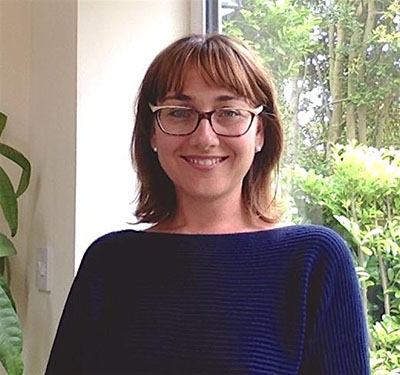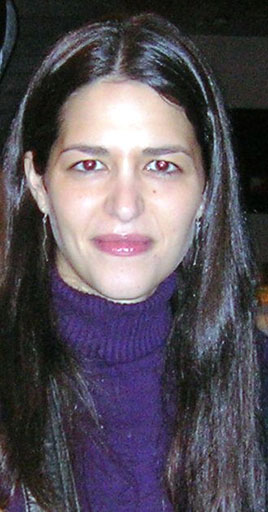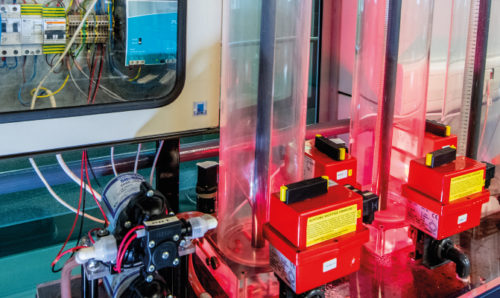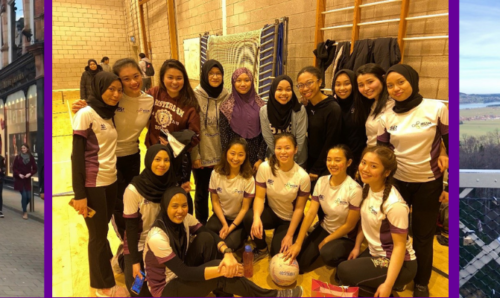National Women in Engineering Day 2016
Welcome to CE 23rd June 2016
If you weren’t already aware, today marks 2016’s National Women in Engineering Day. In its third year, this annual event has already become an international success, bringing people together to to raise the profile of women in

engineering and focus attention on the amazing career opportunities available to girls in this exciting industry.
As an engineering school with the Athena SWAN Silver award, it’s clear that we take this issue, and this day, very seriously. So I couldn’t have let it pass without a little blog piece. Today, I talk to two of our female lecturers, Paolo Carbone and Maria Gonzalez-Miquel, about their own experiences of the issue. Enjoy:
Hi both. Could you please start by telling us what your current roles are? And maybe a little bit about your previous job roles and degrees?
Paola Carbone: I am Senior Lecturer in the School of Chemical Engineering and Analytical Science. I arrived in Manchester in October 2008 with a five year RCUK fellowship, became lecturer in 2013, and was promoted to senior lecturer in 2014. Previously I held a Humboldt fellowship in Germany, in Darmstadt. And I completed a 2 year postdoc in Bologna (Italy). I got my PhD from the University of Milan, Bicocca, in Material Science.
Maria Gonzalez-Miquel: I have been a Lecturer in Chemical Engineering at CEAS since September 2014. Before joining The University of Manchester, I undertook a postdoctoral research period at the University of Notre Dame in the USA. I graduated with a BSc in Chemical Engineering and MSc in Industrial Process Engineering from Complutense University of Madrid in Spain. Afterwards, I completed my PhD studies between Complutense and Autonomous Universities of Madrid in Spain, and I worked as a visiting researcher at Georgia Institute of Technology in USA.
Thanks, both. Sounds like you’ve had pretty exciting careers so far. The WISE campaign’s last in-depth study says that women make up only 21% of people working STEM roles. What made you want to follow the career path you have?
MG: I chose to follow a career in Science and Engineering to feed my curiosity about why things happen and also to further develop my passion for innovation. In particular, I have always been very interested in the environment and food science and technology, so I decided to follow a research career in STEM that allows for the developing of more environmentally friendly processes, reducing environmental emissions and valorising agrifood wastes.
PC: I have always liked STEM subjects, but I was also interested in economy and history. When it was time to decide what undergraduate course to take, however, I opted for chemistry. I realised I was more of a problem-solving person. I enjoy studying and learning and thinking about how to solve a scientific problem. I also enjoy working with other scientists and in a team.

And what do you see as the main obstacles to increasing the percentage of women in STEM roles?
PC: I think one of the obstacles is self-confidence. I myself suffered from a lack of self-confidence. Perhaps things are changing though, as I now notice a great deal more confidence in their ability among our female UG and PG students.
MG: I believe that the main challenge is reaching out to girls in early stages of education to make them realise that both genders are equally capable to contribute and have relevant roles in STEM subjects.
Paola mentions that self-confidence levels seem to be improving. As University staff, do you see other signs that improvements are already happening? Has there been a rise in numbers of female students?
MG: Yes, in recent years the numbers of female students have shown a promising trend and, considering the ongoing outreach targeting primary and secondary education, I believe that the number of STEM female students will positively increase in the forthcoming years.
PC: Yes, the statistics say that there are certainly more female students in Chem Eng than five or ten years ago. In my research group, for example, I now have more female PhD students than male students. That said, the majority aren’t British. So maybe there is still more that needs to be done here in the UK.
If you were trying to inspire young women to study STEM subjects, how would you do that?
PC: I’d tell them that there are fantastic, well-paid, and exciting jobs waiting for them if they study STEM subjects. And that they should not be afraid to challenge themselves intellectually.
MG: I would say that STEM subjects are extremely inspiring and intellectually fulfilling, and also, career wise, they are versatile and rewarding.
Who have been some of the most influential women in your career?
MG: Definitely, my mother! She studied Physical Sciences when very few women pursued even higher education. And she successfully managed to build an exceptional career while being exemplary in her family life.
PC: There were not many women in my subject when I was a PhD student or postdoc. Things are changing now, though. However, I am not someone that naturally looks up to a specific person. I meet many people within my job and I try to learn from each of them. I think each of us needs to develop our own work philosophy and personality.
One final question, then. And back to the main subject at hand. Why do you think the annual National Women in Engineering day is so important?
PC: It is an important opportunity to show young female students that if they decide to work in a STEM related area they can have a normal family-life and at the same time a rewarding and satisfying job. I think it is also useful to dispel the myth that we are all nerds!
MG: To remind everyone that women have an essential role in different aspects of society, including science and engineering. And to continuously develop our present and improve our future.
Brilliant, thank you both. Some real words of inspiration there, and some great insights into your careers. Were you suitably inspired or intrigued by what you read? If so, please let us know about your own experiences in the comment section or tweet us on @ChemEngManUni and use the hashtag #NWED2016.
Have a fantastic NWED everybody, and please make sure to check out any events in your area or even just scan the conversation on Twitter.
Thanks for reading!
Chemical EngineeringNational Women in Engineering DayThe University of Manchester





Leave a Reply